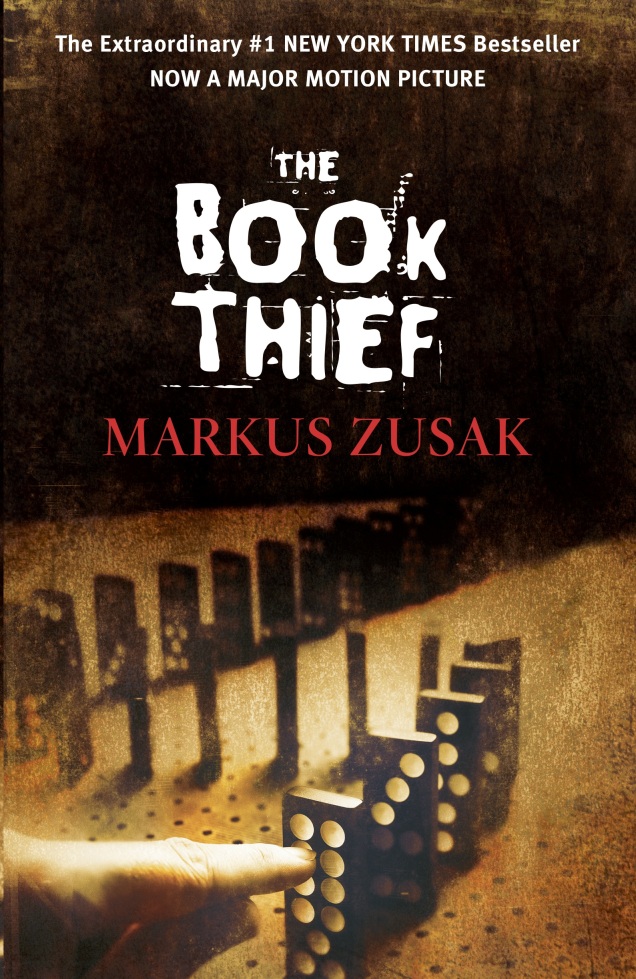 Have you ever wondered how Death sees the world and human experiences? Markus Zusak, in his 2005 New York Times bestselling novel The Book Thief tells the story of a young girl’s experience in World War II Germany from Death’s perspective. Zusak even weaves passages from Death’s diary throughout this heart wrenching tale. This is the story of Liesel Meminger, “the book thief”, who steals books at pivotal moments of her life. The Hubermann family take Leisel in as a foster child during the war. They love her in their unique ways. It is the father, Hans Hubermann, who teaches Liesel to read after her nightly nightmares. Eventually these new family bonds are even more cemented when they begin hiding the Jewish Max Vandenburg, an old family friend, in their basement. Liesel and her best friend Rudy, lean on each other to survive the hardships and horrors of German adolescents coming of age during this war. They steal food when they are desperately hungry, they watch in horror as Jewish concentration camp victims are forcibly marched through their town, and they face loss.
Have you ever wondered how Death sees the world and human experiences? Markus Zusak, in his 2005 New York Times bestselling novel The Book Thief tells the story of a young girl’s experience in World War II Germany from Death’s perspective. Zusak even weaves passages from Death’s diary throughout this heart wrenching tale. This is the story of Liesel Meminger, “the book thief”, who steals books at pivotal moments of her life. The Hubermann family take Leisel in as a foster child during the war. They love her in their unique ways. It is the father, Hans Hubermann, who teaches Liesel to read after her nightly nightmares. Eventually these new family bonds are even more cemented when they begin hiding the Jewish Max Vandenburg, an old family friend, in their basement. Liesel and her best friend Rudy, lean on each other to survive the hardships and horrors of German adolescents coming of age during this war. They steal food when they are desperately hungry, they watch in horror as Jewish concentration camp victims are forcibly marched through their town, and they face loss.
This novel asks: “Can a person steal happiness?” (370). What does it mean to “steal”, and when is it justified? The theme of stealing is explored through its many examples in the story. Liesel steals books and food. Death “steals” lives. The Nazi army “steals” fathers and sons from German families. Another theme present in this book is the power of words. Once Liesel learns to read, words from her stolen books save her. She even reads them out loud to her neighbors during bombings. She also grows to understand the power of Hitler’s words and both loves and hates words at once. “The words. Why did they have to exist? Without them, there wouldn’t be any of this. Without words, the Fuhrer was nothing. There would be no limping prisoners, no need for consolation or wordly tricks to make us feel better” (521).
Markus Zusak’s unique and beautiful writing style quickly pulls the reader into this story. His descriptions are rich with vivid detail. Scattered throughout the text are Death’s reflections about circumstances, which gives the author license to explore things in such a unique way. In one moment, Liesel discovers a shot down American pilot and Death is there. “…Liesel came even closer, and I can promise you that we recognized each other at that exact moment. I know you, I thought. There was a train and a coughing boy. There was snow and a distraught girl. You’ve grown, I thought, but I recognize you” (490). Some sections begin with a bold “featuring” section that lists important incidents in the chapter. There are places where in bold and stared type, there is a big thought or in all caps a “SMALL PIECE OF TRUTH” that reveals something significant about a character or hints at a future event. Similarly, dictionary definitions appear throughout the novel in bold type and link thematically to the story. As he hides in the basement, Max begins to create picture books for Liesel, and pages of these stories appear in the novel as well.
Fans of historical fiction will love this book! World War II has been explored in so many historical fiction novels and films; but, never in this way. Markus Zusak presents characters and stories here that bring a unique perspective on this tragic historic time. It is a story that stays with you after you finish reading.
By: Courtney Stephens
Zusak, Markus. The Book Thief. New York: Alfred A. Knopf, 2006. Print